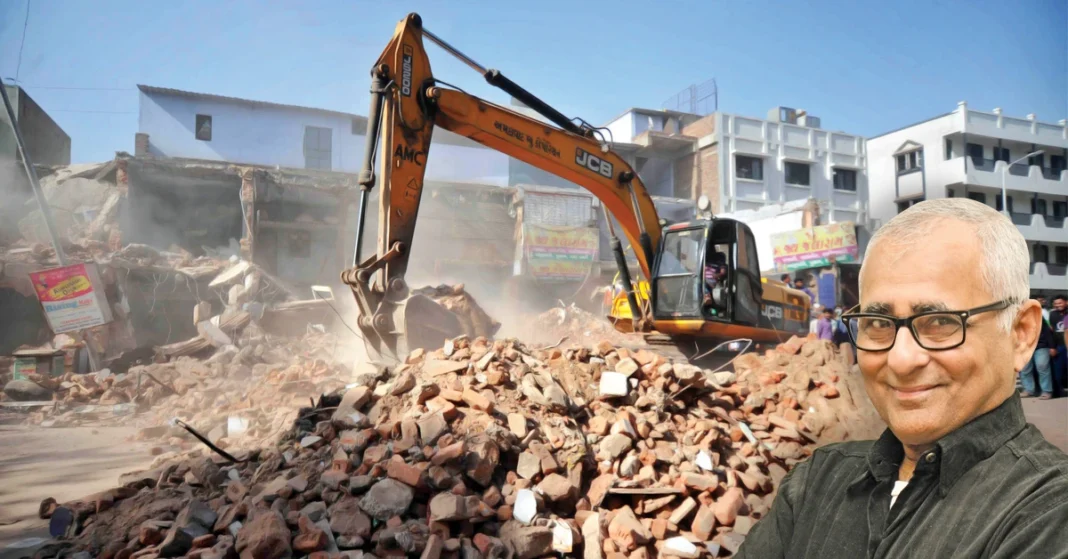By Inderjit Badhwar
Sometimes, a magazine cover chooses itself. This is one of those times. As we watched images of homes, shops, livelihoods—and most recently, even lives—being crushed under the treads of bulldozers, we knew this could no longer be treated as “normal”. What began as a so-called law-and-order measure has now mutated into a political theatre of punishment—often extra-judicial, often televised, and almost always pre-emptive.
This week, we bring to our readers a searing cover story by veteran editor Dilip Bobb whose deep grasp of law, governance, and political power gives this piece an urgency and authority rarely found in mainstream reportage. Bobb doesn’t merely document the rise of the bulldozer as a symbol of majoritarian might—he decodes how and why it has been allowed to morph into a weapon of “collective retribution,” often targeting the weakest, the voiceless, the legally unarmed.
But the true power of this story lies in the question it asks us all: Where is the judiciary?
That question may sound rhetorical. It isn’t. The silence of the courts—or worse, their delayed and diluted responses—are slowly chiselling away the edifice of constitutional due process. Natural justice, the right to be heard, to appeal, to contest allegations—these are not privileges; they are the bedrock of a democracy. And when bulldozers are let loose even before a chargesheet is filed or a trial begins, we must confront the possibility that the rule of law is being replaced by the rule of spectacle.
We have been here before. During the Emergency of 1975, slums were razed and thousands forcibly evicted in the name of “beautification” and “order”. The Supreme Court, in the infamous ADM Jabalpur case, chose to look away, leading to one of the darkest hours in Indian legal history. It took decades—and the moral courage of future benches—to overturn that legacy and reaffirm that fundamental rights cannot be suspended at the whim of power. Today, we are once again at such a precipice.
This story deserves the cover because it is not just about political excess—it is about institutional failure. When the judiciary appears to sidestep its role as the great leveller, as the custodian of our fundamental rights, we are left exposed—whether we are journalists, dissenters, minorities, or just ordinary citizens.
India Legal has always believed in defending the Constitution, not just quoting it. In putting this story front and centre, we reaffirm our commitment to fearless, principled journalism that does not flinch from holding even the mightiest institutions accountable.
We hope this story disturbs you. Because only if it disturbs us all, will there be a chance to course-correct.



